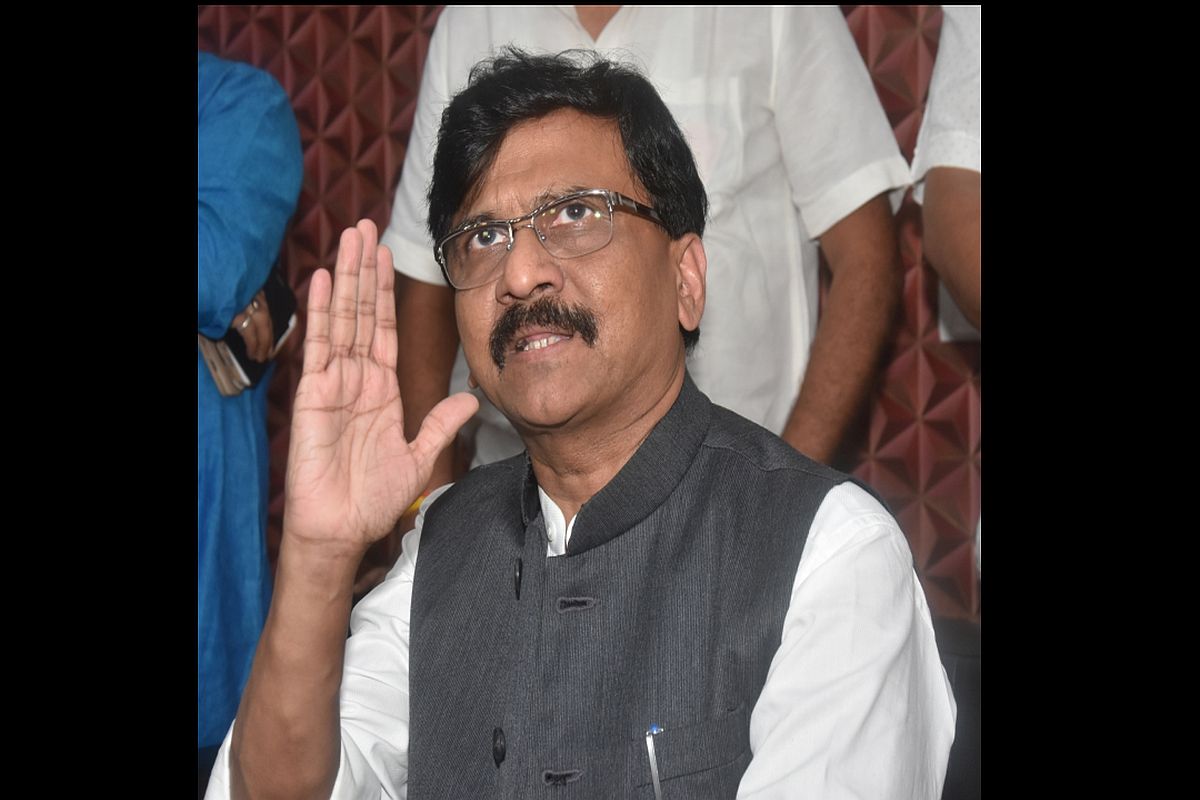Bihar CM meets Patnaik amid speculation of Opposition unity
Earlier, West Bengal Chief Minister Mamata Banerjee had met Naveen Patnaik in Bhubaneswar.
Opposition unity has become the buzzword among non-BJP chief ministers even as the Shiv Sena M.P Sanjay Raut has thrown a bombshell that Mumbai will host a conclave of non-BJP CMs soon.

Sanjay Raut(Photo: IANS)
Opposition unity has become the buzzword among non-BJP chief ministers even as the Shiv Sena M.P Sanjay Raut has thrown a bombshell that Mumbai will host a conclave of non-BJP CMs soon. The idea is to work for a new beginning for the Opposition, and also to chalk out their political strategy for the 2024 Lok Sabha polls. It is still a work in progress, and if all non- BJP leaders attend the conclave, it will be the first step toward forging the elusive opposition unity.
Raut, who announced the proposed meeting, said, “Various issues, including unemployment, inflation, misuse of central probe agencies and attempts to create communal dis- cord, will be discussed in the upcoming meeting.”
While these issues are for public consumption, the real problem is how to check the rise of the BJP in their respective states.
Advertisement
The strategy is first to get as many non-BJP chief ministers and party leaders as possible and take it from there. Well begun is half done. The organisers, including Nationalist Congress chief Sharad Pawar and Shiv Sena chief Uddhav Thackeray, want to have a grand show to signal to the public that they are serious.
The second reason is that while the NDA got 45 per cent of the national vote share, the others shared the remaining 55 per cent. So the opposition still feels that if they unite, they could give a challenge to the BJP. Based on this premise, the opponents think they can give it a shot in 2024.
Third, and in answer to why so soon, the organisers believe that forming a solid political front would take that much time to concretise and formulate a Common Minimum Programme. Most of the earlier efforts did not take off because of the ego problems of the regional satraps, as most of them are unchallenged in their respective states. Also, the regional leaders have conflicting interests and no national outlook.
As a prelude to the idea, leaders of 13 opposition parties on Saturday expressed deep concern over the country’s recent hate speech and communal violence incidents.
They include Congress President Sonia Gandhi, NCP chief Sharad Pawar, West Bengal Chief Minister Mamata Banerjee, and her Tamil Nadu and Jharkhand counterparts, MK Stalin and Hemant Soren respectively. But the joint statement didn’t include leaders from Telugu Desam Party (TDP) and Janata Dal (Secular).
The recent letter from Mamata Banerjee urged them all to commit to the cause of unified and principled opposition to fighting the BJP, which provoked the idea of a conclave. Since Pawar is a senior and respected leader, none of the invitees would decline. The idea is first to stabilise the broad front against the BJP, and the leadership issue would come up only nearer the 2024 polls.
While Telangana Chief Minister K Chandrashekar Rao and earlier Telugu Desam chief Chandrababu Naidu have been pitching themselves as the anti-BJP face, the 13- party joint statement did not include them or JD(S) chief H D Deve Gowda.
Can the combined opposition stop Narendra Modi from winning a third successive term in the 2024 Lok Sabha election? Congress has weakened considerably in the last decade. But the party cannot be left out of any formal front or an informal understanding of anti-BJP forces. Except in Punjab, Rajasthan, Kerala, Karnataka, and Chhattisgarh, the Congress is a diminishing presence nationally. Ironically, both TMC and AAP seek to benefit from poaching from the Congress yet still talk of opposition unity. Congress still has a pan-India presence.
Leaders like Pawar have realized this. If one looks at the arithmetic, except the Congress, none of the others can hope to win more than 40 seats. The grand old party still has a vote share of about 20 per cent. The Congress is the main opposition to the BJP in 227 Lok Sabha constituencies. In another 93 seats in Tamil Nadu, Jharkhand, and Bihar, the Congress is in an alliance. “It is still the second biggest party in the country; it is important to take them along,” Pawar said.
2024 is a long way away, but elections in Himachal Pradesh and Gujarat – both BJP-ruled states – will take place later this year, where Congress is the primary opponent. The immediate concern is about defeating the BJP in both states. Whether the meeting would focus on this is a question mark.
It is indeed a welcome step that the opposition has woken up to make one more effort to unite. A good democracy needs solid opposition. How long and how strong will this be is indeed a question.
Advertisement